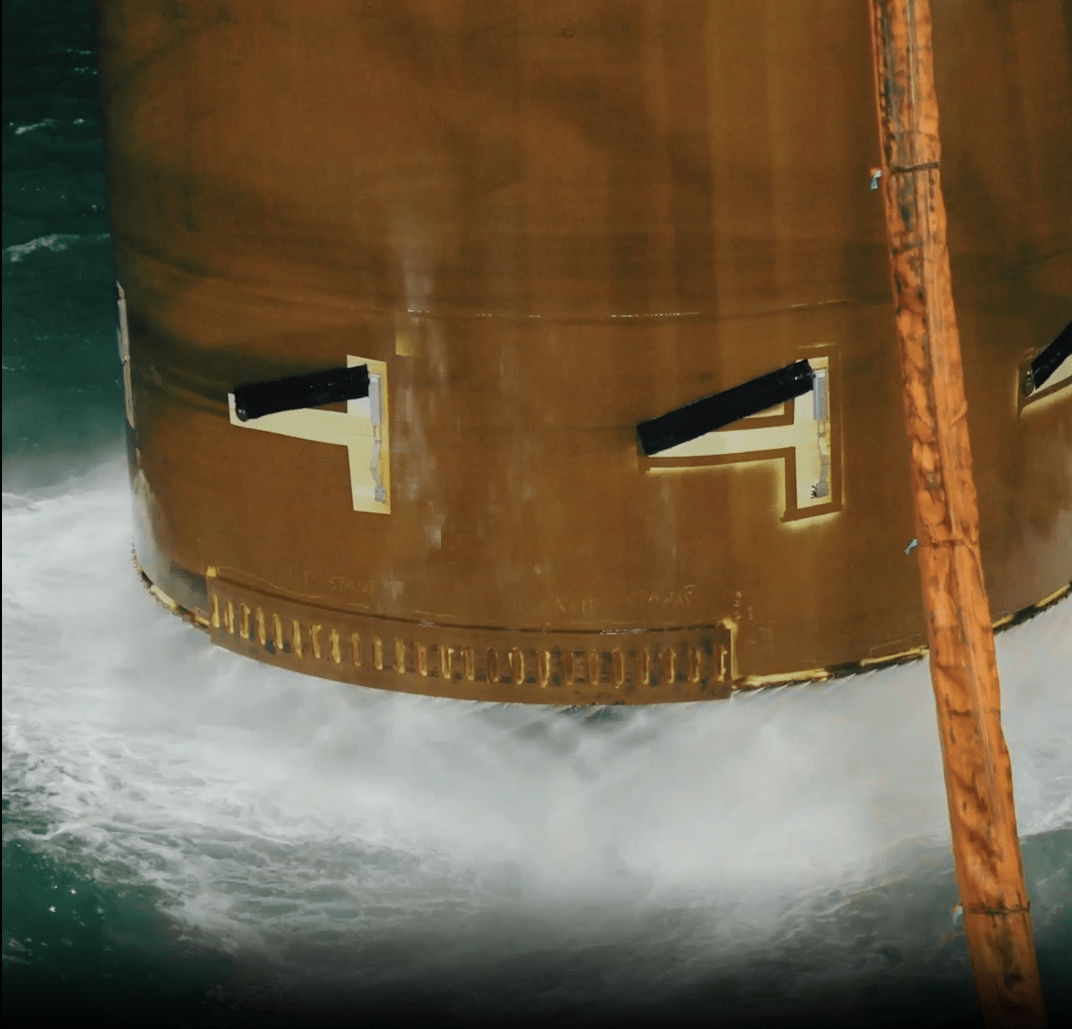On 12 July, Ørsted revealed a new monopile installation method that was tested during the installation of three monopiles of the Gode Wind 3 offshore wind farm in Germany had reduced noise levels by over 99 per cent, to a level only marginally above the ambient noise found in the German Bight in the North Sea.
The method, developed by the offshore wind developer, achieved a reduction of 34 dB, compared to the most commonly used installation method, and without additional mitigation, according to Ørsted.
All monopiles were installed at the 253 MW Gode Wind 3 offshore wind farm by early February this year and the installation of the Siemens Gamesa 11 MW wind turbines started in April.
The noise mitigation method that Ørsted tested at Gode Wind 3 in collaboration with Jan De Nul using its installation vessel Les Alizés and contractor Aarsleff involves a jetting technology attached to the monopile, which lowers the resistance of the surrounding sandy soil. This allows the foundation to sink into the seabed, completely removing the need for methods such as pile driving.
Beyond noise reduction, the technology, once adopted at scale, can provide for more efficient and cost-effective installations of offshore wind foundations, according to the offshore wind developer, who also said this was the first time a jetting technology was used to install full-size monopile foundations.
The technology has been developed and patented by Ørsted with the company now looking into introducing it into the future pipeline. This includes assessing the method’s feasibility on more complex ground conditions than the pure sand conditions found at the Gode Wind 3 site. Also, the technology requires further regulatory approvals before it can be implemented in other markets.
“This new technology is a potential game changer for how we build offshore wind. Once industrialised, it could not only be cheaper, faster, and far quieter – without additional mitigation – than any other monopile installation technology, it also has the potential to make next-generation foundations lighter as they won’t need to be designed for conventional installation process,” said Patrick Harnett, Executive Vice President and Chief Operating Officer at Ørsted.
The offshore wind developer’s news on testing its new noise reduction technology offshore comes shortly after Heerema Marine Contractors, in collaboration with offshore equipment provider IQIP, announced that the two had demonstrated a noise reduction of 24 dB during installation work at EnBW’s He Deiht offshore wind farm in Germany, where Heerema is installing XL monopiles and transition pieces.
In Germany, there are regulations in place that concern the German Bight, which limit underwater noise to 160 dB at 750 metres from the source.

ADVERTISE ON OFFSHOREWIND.BIZ
Get in front of your target audience in one move! OffshoreWIND.biz is read by thousands of offshore wind professionals daily.
Follow offshoreWIND.biz on:

